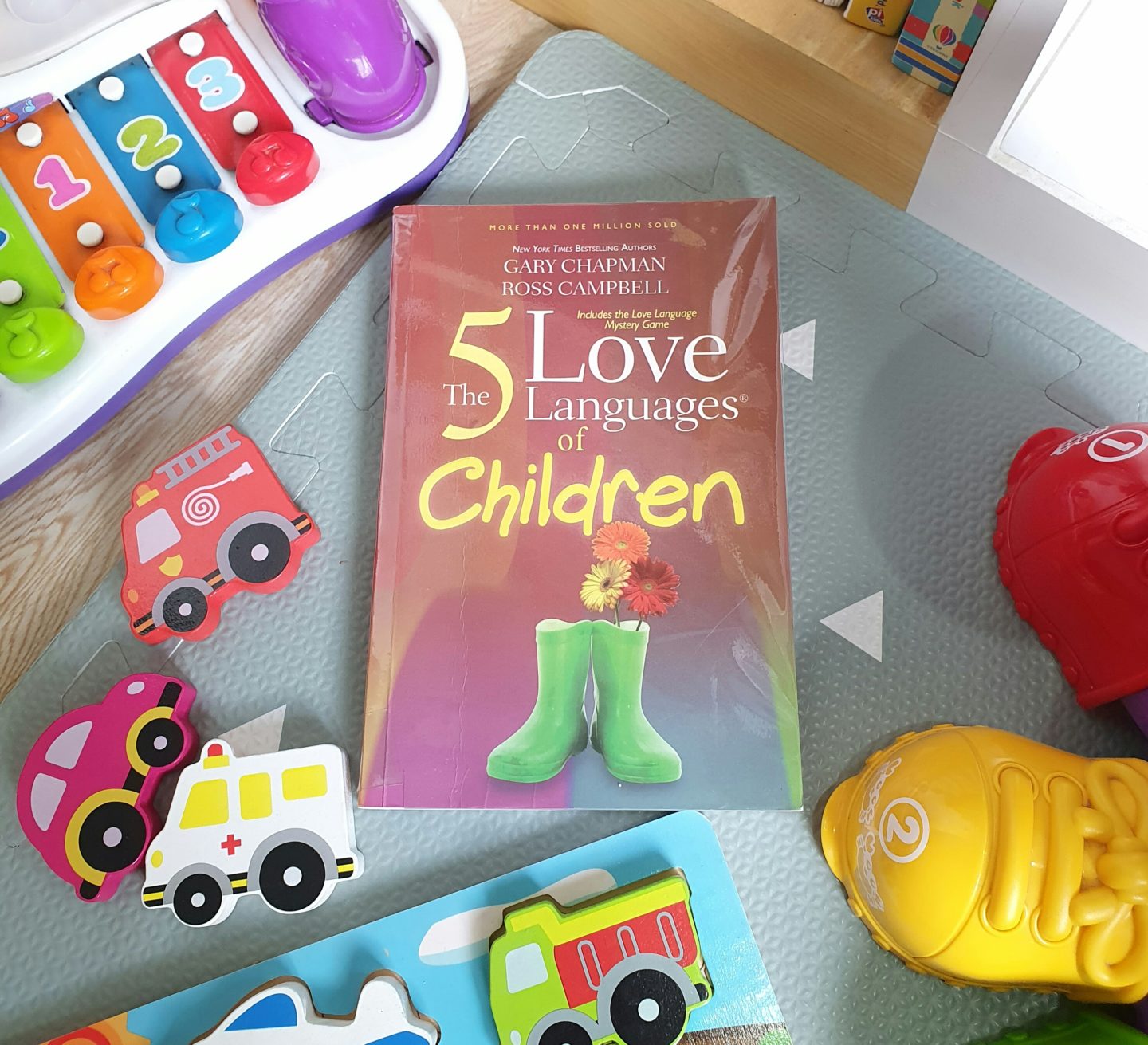Whether you are a parent who loves to read, or only has time for really good books, The 5 Love Languages For Children is definitely worth adding to you reading list.

If the title seems familiar, it is most probably because you heard about The 5 Love Languages book for couples, one of the most popular books about relationships. The version for children will be a good guide to help you understand, discipline, interact and strengthen your relationship with your kids, no matter what age they are in.
The concept of the 5 love languages for couples; gifts, physical touch, act of service, words of affirmation, and quality time, is the same with kids. What makes this book impactful for me was that it gave me a whole new mindset; to see my kids as individuals who have different needs on getting their love cups filled. Parenthood, after all, is not just about discipline and shaping individuals, it is a relationship. Just like in any relationship, a parent and a child can only grow if both feel loved and valued. Communicating to each other will be easier and more fruitful.
Another major takeaway from this book is that, if a parent knows the love language of a child, setting ground rules for discipline will be much easier and will have better results. A child who feels loved will see discipline measures as a consequence for a wrongdoing and not an act out of anger. Being familiar with your child’s love language will also enable you to know what discipline method that will work for him or her.
After reading the book, I paid a closer look at my children and deciphered their love languages. My eldest, who is now a teen, feels loved through quality time and words of affirmation. Listening to him uninterrupted means so much to him. He feels valued and loved if we take time to be with him. Whenever I ask him about the moments he missed most before the pandemic, he said that, it is those that allowed us to spend exclusive time with each other; fetching him from school, having snacks together before going to his Kumon class. Knowing the condition of his brother, he was always been very giving and understanding of the amount of time I spend with Hendrix, so those moments when he has me all by himself are something he appreciates the most. A line in the book goes:
“Quality time not only means doing things together, but it is a means for knowing your child better.”
And with Heinel, this is true. It is on random moments that we spend together that I get to have a glimpse of he he is; his likes, his interests, his friends, his life as a teenager.
Heinel is a very mild mannered individual. In terms of discipline, I find that diplomacy works for him. It is more effective when I calmly talk to him. We openly discuss ground rules and consequences of misbehavior. He knows that even though I will constantly monitor him, these rules are to be followed.
With my youngest, Hendrix, physical touch is his love language. He likes to be cuddled and touched. Skin to skin contact is important to him. When he plays with a toy, he likes it that he is beside me. He loves leaning to his teachers, even hugging them.
Hendrix is more intense in terms of expressing his feelings. When he’s upset, he makes it known. With him, I had to express some degree of authority especially when he gets rough. Because he is non-verbal, there are instances when he gets really frustrated when we could not understand him. He gets angry and agitated. Because his love language is touch, this is also the way to calm him down. I hold his shoulders, look him eye to eye, and remind him that we can not understand each other if he is angry. He does calm down, and afterwards, we talk. I listen to him mumble, seemingly explaining his side, then holds his hand while I tell him what was wrong with his behavior.
Different love language, different modes of discipline.
I used to be a very intense parent, This book made me a calm one. I honestly think that had I came across this book much earlier, I would had been a better mom to Heinel. What is good about this, is that it has ways on how you can apply it for different ages; toddlers, school age, teenager, and yes, even adulthood. We do not stop being parents when they reach the age of maturity and this book aims to help us connect with them in different stages of their lives.
To end, let me be the one to confirm that yes, raising kids is tough. Most of the time, I do no know what I am doing. I was raised the traditional way, and for some time, I raised my kids that way too. This is no clear cut guide book but it helps to learn from others, or even from this book, and figure out what works for you and your child. Do not be too hard on yourself. Instead, cherish every experience that comes along in this one of a kind journey.
If you read The 5 Love Languages Of
Children, I would love to know your thoughts on it, or even on this blog. Have a great day!

